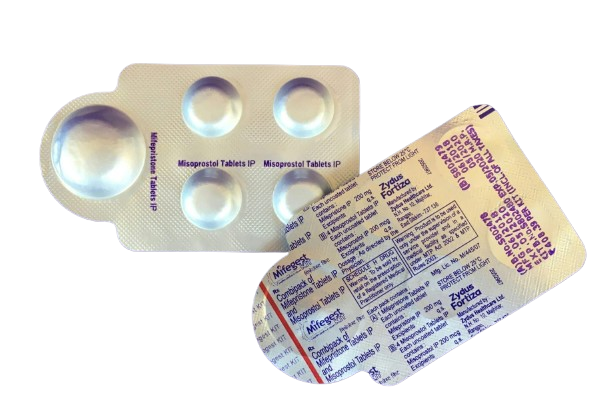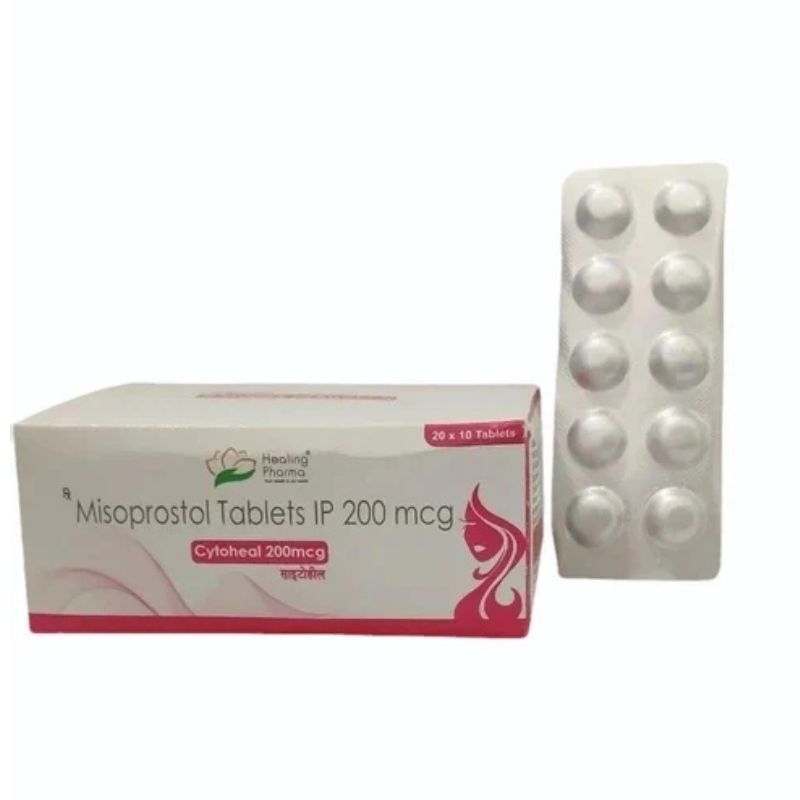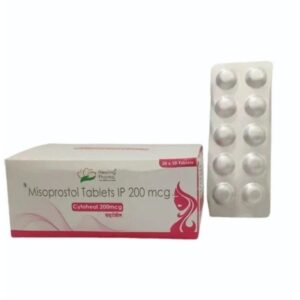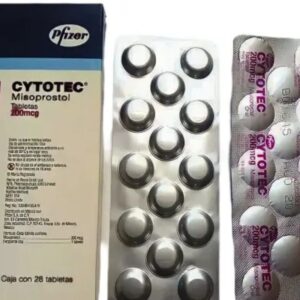Abortion Pills Le Hemaira
Medication abortion (also known as medical abortion or the Abortion Pills Le Hemaira) is an alternative to surgical abortion. This type of abortion can be performed in the early weeks of pregnancy (up to 9 weeks).
Medication abortion uses a combination of 2 medications – mifepristone and misoprostol – to end an unplanned pregnancy.
Buy Via WhatsApp
Product Info
Abortion Pills Le Hemaira
Abortion Pills Le Hemaira, Medication abortion is a low-risk, non-invasive way to terminate (end) a pregnancy. It is around 99% effective.
Around 2 to 5% of people who have a medication abortion will need some follow up treatment to complete the abortion.
An increasing number of GPs in Dubai provide medication abortions. Some services offer telehealth as an option via a phone call and your tests are organised locally. We also offer Abortion Pills Umm Al Daman check them out at reasonable prices.
For more information about Abortion Pills Le Hemaira where to find an abortion provider in Dubai WhatsApp us today.
How medication abortion works
Medication abortion uses combined medications (mifepristone and misoprostol) Abortion Pills Le Hemaira instead of surgery to end a pregnancy. It can be done as soon as a pregnancy can be seen on an ultrasound.
In Dubai, a medication abortion can be performed up to 9 weeks during pregnancy.
A pregnancy needs high levels of the hormone progesterone to continue. Mifepristone (previously known as RU486) blocks the action of progesterone to stop the pregnancy from progressing. Misoprostol softens the cervix and contracts the uterus to expel the pregnancy.
What to expect during your medication abortion appointments
The process and number of appointments for having a medication abortion varies depending on the type of clinic setting you attend, and whether certain tests (such as ultrasound and blood tests) are available on site or require separate appointments.
Some clinics can offer necessary tests and medication abortion in a single initial appointment.
If you have an intrauterine device (IUD), it will need to be removed before you take the first medication (mifepristone).
You will be seen by a doctor, and often a nurse, who will usually:
Check the stage of your pregnancy – an ultrasound, urine and blood tests will be organised. Some clinics may offer tests for sexually transmissible infections (STIs).
Do a confidential medical assessment – you may be asked questions about your medical history and any other relevant information (such as your sexual and reproductive health).
Provide you with information (such as the types of abortion, what to expect, steps involved, and about pre- and post-abortion care available).
Give you the opportunity to ask questions so you can make an informed decision about what’s the best option for you.
Ask you to sign a consent form (if you decide to have a medication abortion).
Have a discussion about pain relief and any other medication you may require to reduce side effects.
Give you a prescription for the abortion medicines – these need to be taken to a pharmacy.
Discuss any contraception choices – ask what options are available to suit your needs.
What to expect during an abortion medication procedure
An Abortion Pills Le Hemaira medication procedure usually involves the following steps:
A tablet of mifepristone first – you can go about your usual activities.
Take a tablet of misoprostol 36 to 48 hours later. This softens the cervix and helps the uterus push out the pregnancy.
Stay at home for the next 6-10 hours – make other arrangements for anyone under your care (for example, school pick up).
Get a responsible adult to stay with you so they can drive you to a clinic or hospital if you need any extra care.
The abortion will be completed some hours later – although it may take longer.
A day or 2 of rest or reduced activity.
Keep in contact via telephone with the clinic you attended or seek other expert support in case you have any questions or concerns during and after the procedure.
What happens after taking abortion medications
After taking the second medication abortion tablet at home, you may experience the following:
nausea, vomiting, diarrhoea, dizziness, headache and fever
pain – usually within half an hour and generally much stronger than period pain
bleeding one to four hours later – heavier than a period and there may be large clots
after 2 to 6 hours the bleeding usually settles to the level of your normal period
bleeding is usually similar to a normal period for another 3 to 7 days
unpredictable, irregular or prolonged bleeding can last for up to 4 weeks after a medication abortion.
Note: The timing of the pain and bleeding is unpredictable. It occasionally starts before taking the second medication, but may take up to 24 hours to start.
Follow-up appointments after a medication abortion
It is important to have a follow-up appointment to make sure the procedure is complete and the pregnancy has ended.
Many doctors order a blood test to check that the pregnancy hormone level has dropped. You will be given an appointment for review in 2 weeks’ time.
Medication abortion/ Abortion Pills Le Hemaira does not work in around one per cent of cases. Around 2 to 5% of people have some pregnancy tissue remaining in the uterus (womb) and will need further treatment (such as additional tablets or a small surgical procedure) to complete the abortion. Your doctor will discuss this with you.
Self-care at home after a medication abortion
The doctor or nurse will advise on how to take care of yourself in the days following the abortion. Self-care may include:
using over-the-counter anti-inflammatory medication to help manage the cramps (your doctor can prescribe stronger medication if needed)
using hot packs for pain relief
massaging the painful area.
To reduce the risk of infection during the week after having the procedure, it is recommended that you do not:
insert anything into your vagina, including tampons
have vaginal sex
perform any strenuous activity, including sport or heavy physical work, until the bleeding stops
go swimming or have a bath (you can shower).
Your doctor will let you know about any side effects and risks and what to do if they occur.
Advantages and disadvantages of medication abortion – Abortion Pills Le Hemaira
Medication abortion is not suitable and may not work for everyone. If you have any concerns, it is important to discuss them with someone you can trust. Such as a partner, friend, family member, teacher, school counsellor or health professional.
Advantages of medication Abortion Pills Le Hemaira include:
Is effective for around 95 to 98% pregnancies (up to 9 weeks) and no further treatment is needed.
Does not need to take place in a hospital or day surgery so it doesn’t require a surgeon, anaesthetist or other medical staff. This makes it a suitable alternative for people in remote areas as long as they have access to emergency care.
Is a less clinical and non-surgical procedure, which some may prefer.
Some people feel it is a more natural process.
It happens in a home environment.
You usually have more choice about the timing.
Disadvantages of medication abortion include:
Tend to be more time consuming than surgical abortions – there may be more doctor visits and tests.
It may not work for some people so the medication needs to be repeated or a surgical abortion is needed.
Pain and bleeding generally last longer than following a surgical abortion.
It is difficult to predict when a medication abortion is complete – it may take longer than the expected 3 to 10 hours, after taking the second medication – Abortion Pills Le Hemaira.
A separate appointment is needed if you would like an IUD inserted after your abortion.
You need to stay within 1-2 hours of emergency services for 2 weeks after a starting your tablets.
Abortion medications are not suitable for some people.
Medication abortion is not suitable for everyone
Medication abortion may not be recommended if you:
have certain medical conditions (such as bleeding problems, adrenal failure or high blood pressure)
take long-term steroid or blood-thinning medication
have had allergic reactions to the medication.
Medication abortion side effects and possible risks
Your doctor will inform you about side effects and the risk of complications and what to do if they occur.
Typical side effects of medication abortion
Typical side effects of medication abortion include:
pain from uterine cramping
unpredictable, irregular or prolonged bleeding.
Contact your Abortion Pills Le Hemaira doctor if any of these side effects are worrying or you need medical advice. You will also be given the number for a 24 hour hotline in case you have any out of hours concerns.
Possible risks of medication abortion
Serious complications of medication abortion are uncommon. They may include:
Haemorrhage (very heavy bleeding) – haemorrhage requiring a blood transfusion occurs in fewer than one in 1,000. If you are filling more than 2 large pads an hour for more than 2 hours, passing clots the size of a small lemon or feel you are bleeding heavily and feel weak or faint, seek immediate medical attention.
Retained products – pieces of tissue may remain in the womb and cause ongoing bleeding. These will usually pass with time without treatment. You might need repeat tablets or a small surgical procedure to remove them.
Continued pregnancy – in around one per cent, medication abortion does not work and the pregnancy remains. The Abortion Pills Le Hemaira/tablets can be repeated (if the pregnancy is no more than 9 weeks), otherwise a surgical abortion may be required.
Infection (needing antibiotic treatment) – this happens to one per cent of people. Infection may cause symptoms such as pain, abnormal vaginal discharge or fever. Sometimes symptoms aren’t obvious and may include general symptoms such as tiredness, diarrhoea and vomiting.
If you are concerned about symptoms, seek medical assistance by contacting the clinic where the medication abortion took place, a GP, the 24 hotline you are given, your nearest hospital emergency department or by calling 000 for an ambulance.
Other possible complications of medication abortion
If you think you are still pregnant after a week or you are not bleeding at all 24 hours after taking misoprostal, seek medical assistance straight away.
If the abortion does not occur and you remain pregnant, it is recommended that you do not continue the pregnancy. In some cases, the medications you have taken may cause malformation of the developing fetus.
Managing emotions after a medication abortion
After an abortion, most people feel relief – particularly if they had support, and were able to make a free and informed decision.
If the decision was difficult for you, you may feel sadness or have other negative feelings, especially in the short term.
If you feel you need emotional support, speak to your abortion provider or GP.
Abortion Pills Le Hemaira, Remember, if your pregnancy is unplanned and you are finding it difficult to weigh up your options, emotional support is available.
Where to get help
In an emergency, call for an ambulance or go to your nearest hospital emergency department
We provide information on a range of private and public clinics and services which can offer medication abortion.
Your GP (doctor) or gynaecologist
Your medication abortion service provider
Women’s health clinic provides Abortion Pills Le Hemaira at affordable prices.




